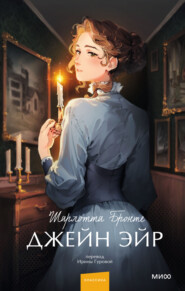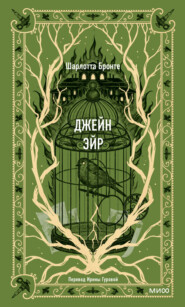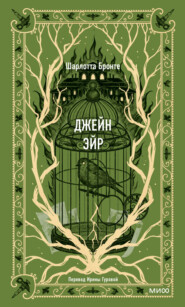По всем вопросам обращайтесь на: info@litportal.ru
(©) 2003-2024.
✖
Villette
Настройки чтения
Размер шрифта
Высота строк
Поля
"No," was the reply, "not Miss de Bassompierre for you!" I did not inquire who then she might be, but waited voluntary information.
"You are changed, but still you are yourself," she said, approaching nearer. "I remember you well – your countenance, the colour of your hair, the outline of your face…"
I had moved to the fire, and she stood opposite, and gazed into me; and as she gazed, her face became gradually more and more expressive of thought and feeling, till at last a dimness quenched her clear vision.
"It makes me almost cry to look so far back," said she: "but as to being sorry, or sentimental, don't think it: on the contrary, I am quite pleased and glad."
Interested, yet altogether at fault, I knew not what to say. At last I stammered, "I think I never met you till that night, some weeks ago, when you were hurt…?"
She smiled. "You have forgotten then that I have sat on your knee, been lifted in your arms, even shared your pillow? You no longer remember the night when I came crying, like a naughty little child as I was, to your bedside, and you took me in. You have no memory for the comfort and protection by which you soothed an acute distress? Go back to Bretton. Remember Mr. Home."
At last I saw it all. "And you are little Polly?"
"I am Paulina Mary Home de Bassompierre."
How time can change! Little Polly wore in her pale, small features, her fairy symmetry, her varying expression, a certain promise of interest and grace; but Paulina Mary was become beautiful – not with the beauty that strikes the eye like a rose – orbed, ruddy, and replete; not with the plump, and pink, and flaxen attributes of her blond cousin Ginevra; but her seventeen years had brought her a refined and tender charm which did not lie in complexion, though hers was fair and clear; nor in outline, though her features were sweet, and her limbs perfectly turned; but, I think, rather in a subdued glow from the soul outward. This was not an opaque vase, of material however costly, but a lamp chastely lucent, guarding from extinction, yet not hiding from worship, a flame vital and vestal. In speaking of her attractions, I would not exaggerate language; but, indeed, they seemed to me very real and engaging. What though all was on a small scale, it was the perfume which gave this white violet distinction, and made it superior to the broadest camelia – the fullest dahlia that ever bloomed.
"Ah! and you remember the old time at Bretton?"
"Better," said she, "better, perhaps, than you. I remember it with minute distinctness: not only the time, but the days of the time, and the hours of the days."
"You must have forgotten some things?"
"Very little, I imagine."
"You were then a little creature of quick feelings: you must, long ere this, have outgrown the impressions with which joy and grief, affection and bereavement, stamped your mind ten years ago."
"You think I have forgotten whom I liked, and in what degree I liked them when a child?"
"The sharpness must be gone – the point, the poignancy – the deep imprint must be softened away and effaced?"
"I have a good memory for those days."
She looked as if she had. Her eyes were the eyes of one who can remember; one whose childhood does not fade like a dream, nor whose youth vanish like a sunbeam. She would not take life, loosely and incoherently, in parts, and let one season slip as she entered on another: she would retain and add; often review from the commencement, and so grow in harmony and consistency as she grew in years. Still I could not quite admit the conviction that all the pictures which now crowded upon me were vivid and visible to her. Her fond attachments, her sports and contests with a well-loved playmate, the patient, true devotion of her child's heart, her fears, her delicate reserves, her little trials, the last piercing pain of separation… I retraced these things, and shook my head incredulous. She persisted. "The child of seven years lives yet in the girl of seventeen," said she.
"You used to be excessively fond of Mrs. Bretton," I remarked, intending to test her. She set me right at once.
"Not excessively fond," said she; "I liked her: I respected her as I should do now: she seems to me very little altered."
"She is not much changed," I assented.
We were silent a few minutes. Glancing round the room she said, "There are several things here that used to be at Bretton! I remember that pincushion and that looking-glass."
Evidently she was not deceived in her estimate of her own memory; not, at least, so far.
"You think, then, you would have known Mrs. Bretton?" I went on.
"I perfectly remembered her; the turn of her features, her olive complexion, and black hair, her height, her walk, her voice."
"Dr. Bretton, of course," I pursued, "would be out of the question: and, indeed, as I saw your first interview with him, I am aware that he appeared to you as a stranger."
"That first night I was puzzled," she answered.
"How did the recognition between him and your father come about?"
"They exchanged cards. The names Graham Bretton and Home de Bassompierre gave rise to questions and explanations. That was on the second day; but before then I was beginning to know something."
"How – know something?"
"Why," she said, "how strange it is that most people seem so slow to feel the truth – not to see, but feel! When Dr. Bretton had visited me a few times, and sat near and talked to me; when I had observed the look in his eyes, the expression about his mouth, the form of his chin, the carriage of his head, and all that we do observe in persons who approach us – how could I avoid being led by association to think of Graham Bretton? Graham was slighter than he, and not grown so tall, and had a smoother face, and longer and lighter hair, and spoke – not so deeply – more like a girl; but yet he is Graham, just as I am little Polly, or you are Lucy Snowe."
I thought the same, but I wondered to find my thoughts hers: there are certain things in which we so rarely meet with our double that it seems a miracle when that chance befalls.
"You and Graham were once playmates."
"And do you remember that?" she questioned in her turn.
"No doubt he will remember it also," said I.
"I have not asked him: few things would surprise me so much as to find that he did. I suppose his disposition is still gay and careless?"
"Was it so formerly? Did it so strike you? Do you thus remember him?"
"I scarcely remember him in any other light. Sometimes he was studious; sometimes he was merry: but whether busy with his books or disposed for play, it was chiefly the books or game he thought of; not much heeding those with whom he read or amused himself."
"Yet to you he was partial."
"Partial to me? Oh, no! he had other playmates – his school-fellows; I was of little consequence to him, except on Sundays: yes, he was kind on Sundays. I remember walking with him hand-in-hand to St. Mary's, and his finding the places in my prayer-book; and how good and still he was on Sunday evenings! So mild for such a proud, lively boy; so patient with all my blunders in reading; and so wonderfully to be depended on, for he never spent those evenings from home: I had a constant fear that he would accept some invitation and forsake us; but he never did, nor seemed ever to wish to do it. Thus, of course, it can be no more. I suppose Sunday will now be Dr. Bretton's dining-out day…?"
"Children, come down!" here called Mrs. Bretton from below. Paulina would still have lingered, but I inclined to descend: we went down.
CHAPTER XXV.
THE LITTLE COUNTESS
Cheerful as my godmother naturally was, and entertaining as, for our sakes, she made a point of being, there was no true enjoyment that evening at La Terrasse, till, through the wild howl of the winter-night, were heard the signal sounds of arrival. How often, while women and girls sit warm at snug fire-sides, their hearts and imaginations are doomed to divorce from the comfort surrounding their persons, forced out by night to wander through dark ways, to dare stress of weather, to contend with the snow-blast, to wait at lonely gates and stiles in wildest storms, watching and listening to see and hear the father, the son, the husband coming home.
Father and son came at last to the château: for the Count de Bassompierre that night accompanied Dr. Bretton. I know not which of our trio heard the horses first; the asperity, the violence of the weather warranted our running down into the hall to meet and greet the two riders as they came in; but they warned us to keep our distance: both were white – two mountains of snow; and indeed Mrs. Bretton, seeing their condition, ordered them instantly to the kitchen; prohibiting them, at their peril, from setting foot on her carpeted staircase till they had severally put off that mask of Old Christmas they now affected. Into the kitchen, however, we could not help following them: it was a large old Dutch kitchen, picturesque and pleasant. The little white Countess danced in a circle about her equally white sire, clapping her hands and crying, "Papa, papa, you look like an enormous Polar bear."
The bear shook himself, and the little sprite fled far from the frozen shower. Back she came, however, laughing, and eager to aid in removing the arctic disguise. The Count, at last issuing from his dreadnought, threatened to overwhelm her with it as with an avalanche.
"Come, then," said she, bending to invite the fall, and when it was playfully advanced above her head, bounding out of reach like some little chamois.
Her movements had the supple softness, the velvet grace of a kitten; her laugh was clearer than the ring of silver and crystal; as she took her sire's cold hands and rubbed them, and stood on tiptoe to reach his lips for a kiss, there seemed to shine round her a halo of loving delight. The grave and reverend seignor looked down on her as men do look on what is the apple of their eye.
"Mrs. Bretton," said he: "what am I to do with this daughter or daughterling of mine? She neither grows in wisdom nor in stature. Don't you find her pretty nearly as much the child as she was ten years ago?"
"She cannot be more the child than this great boy of mine," said Mrs. Bretton, who was in conflict with her son about some change of dress she deemed advisable, and which he resisted. He stood leaning against the Dutch dresser, laughing and keeping her at arm's length.

















